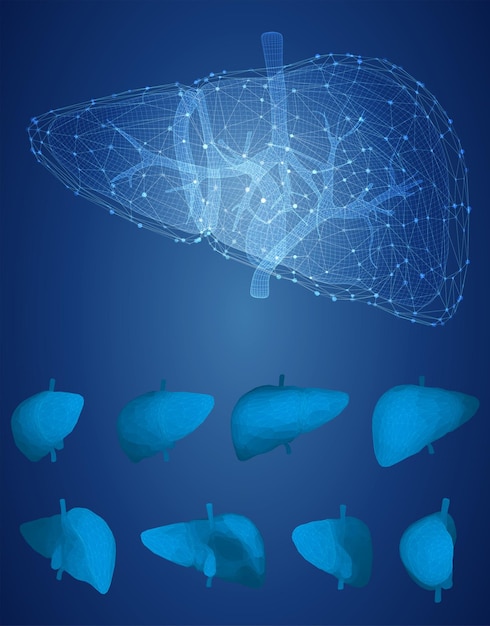Overview
The liver is your body’s primary detox organ, working in tandem with your digestive system, gallbladder, and pancreas to process everything you consume, from wholesome foods like almonds to occasional treats like donuts. However, sometimes toxins or illnesses can damage the liver, leading to elevated liver enzyme levels in your bloodstream.
But what are liver enzymes precisely, and why is it significant when they rise above the normal range? Read on to discover more about liver enzymes and natural methods to lower their levels for better health.
What Are Liver Enzymes?
Enzymes are proteins in your body that accelerate biochemical reactions. Each enzyme is responsible for a specific chemical process.
In the liver, enzymes facilitate the breakdown of bilirubin, a waste product of blood. They also aid in converting proteins and carbohydrates, including glucose, into usable energy. Common liver enzymes include:
* Alanine transaminase (ALT)
* Aspartate transaminase (AST)
* Alkaline phosphatase (ALP)
* Gamma-glutamyl transferase (GGT)
These enzymes are typically housed within the liver. When the liver is distressed or damaged, it may release extra enzymes into your bloodstream.
It’s important to note that increased ALT and AST levels do not always indicate a severe liver condition. Various factors can cause a temporary spike in liver enzymes that often resolves on its own.
Common Signs of Elevated Liver Enzymes
Liver issues may sometimes develop without noticeable symptoms. Elevated liver enzymes themselves might not cause any symptoms, but continued liver damage can eventually lead to signs. Your healthcare provider may conduct a liver test to check for elevated enzymes or bilirubin. Here are some common symptoms that may suggest liver problems:
* Nausea
* Loss of appetite
* Fatigue
* Jaundice (yellowing of eyes and skin)
* Itching
* Swollen abdomen
* Pale stool and dark urine
* Skin blemishes or rashes
Natural Ways to Lower Elevated Enzymes
The liver is a remarkable organ capable of repairing itself and returning to proper function. This requires allowing it to rest and supporting it with a healthy lifestyle. Here are some natural methods to support liver health and aid digestion.
Stop Drinking Alcohol
If you have elevated liver enzymes, it’s crucial to stop drinking alcohol. Alcohol is extremely hard on your liver, and excessive drinking is a common cause of elevated enzymes. By reducing or eliminating alcohol consumption, you can help your liver recover.
For those with an “alcoholic fatty liver,” the best management strategy is to reduce or stop alcohol intake. Even if liver damage is already present, abstaining from alcohol significantly improves survival rates in patients with alcoholic cirrhosis.
Even if you drink occasionally and have nonalcoholic fatty liver disease, avoiding alcohol can help maintain a healthy liver and normalize enzyme levels.
Change Your Diet
Since your liver processes all the food you consume, choosing a healthier diet gives it a chance to rest and reduces inflammation.
To begin with, reduce your fat intake. This not only aids weight loss but can also lower elevated liver enzymes. Replace saturated fats with unsaturated fats to reduce the risk of heart disease.
Next, lower your sugar intake. Avoid sugary drinks like sodas and store-bought juices. Opt for low-glycemic index foods such as whole grains or leafy greens instead of high-glycemic foods like white rice and bread. These steps also decrease the risk of metabolic disorders.
Incorporate a variety of fresh, organic fruits and vegetables into your diet and reduce meat consumption. Eliminating harmful foods forms the basis of a liver cleanse—more on that below.
Take Medicinal Herbs
Certain medicinal herbs contain beneficial compounds that support liver health.
Milk Thistle
Milk thistle (Silybum marianum) is a widely used herbal supplement for liver health. Its active compound, silymarin, protects the liver from toxins and infections while reducing inflammation. Milk thistle is both safe and well-tolerated.
Holy Basil (Tulsi)
Tulsi (Ocimum tenuiflorum) offers liver-protective benefits and reduces systemic inflammation. It’s an adaptogen that helps the body manage stress and may work well in combination with milk thistle.
Turmeric
Turmeric (Curcuma longa), a staple in Indian cuisine, is also known for its medicinal properties. It supports normal liver enzyme levels and reduces inflammation.
Try a Liver Cleanse
Consider a liver cleanse to remove toxins and boost overall liver health. A liver cleanse might involve eating liver-friendly foods and adding natural digestive aids like olive oil, Epsom salts, turmeric, and oxygenated magnesium colon cleansers. A liver cleanse also benefits the gallbladder.
Points to Remember
Your liver works hard to process everything you eat and drink, converting toxins, proteins, and sugars into energy. Diets high in fat, sugar, and alcohol can strain the liver and elevate enzyme levels. Other conditions can also cause elevated liver enzymes, potentially leading to symptoms like fatigue, weight loss, abdominal pain, dark urine, and itching.
The good news is that liver damage can often be reversed with dietary and lifestyle changes. If your liver enzymes are elevated, focus on reducing alcohol and saturated fat intake, cutting down on sugar, and eating more fruits and vegetables. Additionally, certain herbs like milk thistle, tulsi, and turmeric can help support liver health. Finally, a liver cleanse can be an effective way to improve your overall health.

